Market Value
Learn what market value means in Canadian real estate, how it’s determined, and why it’s essential for pricing, financing, and smart investing.

May 22, 2025
What is Market Value?
Market value is the estimated price a property would sell for on the open market, assuming both buyer and seller are knowledgeable, willing, and acting without pressure.
Why Market Value Matter in Real Estate
In Canadian real estate, market value serves as the benchmark for pricing, financing, taxation, and investment decisions. It reflects the true worth of a property based on factors such as:- Location and neighbourhood trends
- Recent comparable sales (comps)
- Property condition and features
- Market supply and demand
- Economic conditions and interest rates
Market value is determined through appraisals, Comparative Market Analyses (CMAs) by REALTORS®, or buyer/seller negotiation. It's distinct from assessed value (used for property tax) and listing price (seller's asking amount).
Understanding market value helps sellers set realistic prices, prevents buyers from overpaying, and enables lenders to ensure that a mortgage doesn’t exceed the property’s worth. Investors also rely on accurate market valuations to assess return potential and risk exposure.
In competitive markets, emotional bidding can inflate sale prices above market value, increasing risk for buyers if a lender’s appraisal doesn’t align. Buyers should always seek professional valuation guidance before making a final offer.
Example of Market Value
A home is listed at $850,000, but a local REALTOR®’s CMA shows its market value to be closer to $825,000 based on similar recent sales.
Key Takeaways
- Reflects the price a property would fetch on the open market.
- Based on local comps, condition, and economic trends.
- Used by buyers, sellers, lenders, and appraisers.
- May differ from assessed or listing price.
- Vital for fair negotiation and financing decisions.
Related Terms
- Appraisal
- Listing Price
- Assessed Value
- Comparative Market Analysis (CMA)
- Fair Market Value


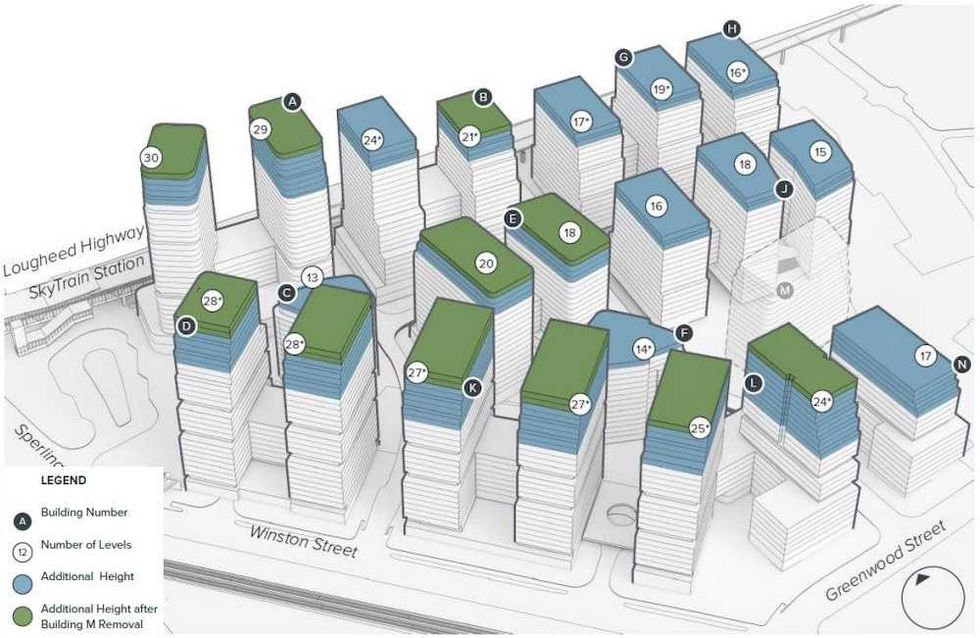 Building height changes from the previous master plan apllcation. (Peterson)
Building height changes from the previous master plan apllcation. (Peterson)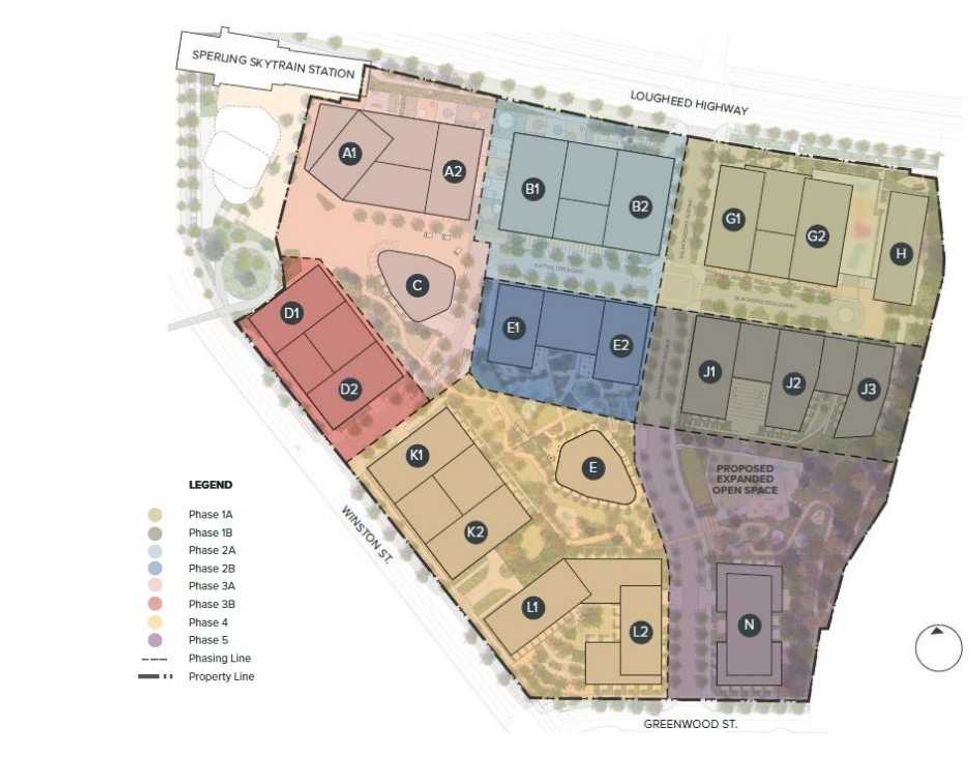 An overview of Blake Village and the phasing plan. (Peterson)
An overview of Blake Village and the phasing plan. (Peterson)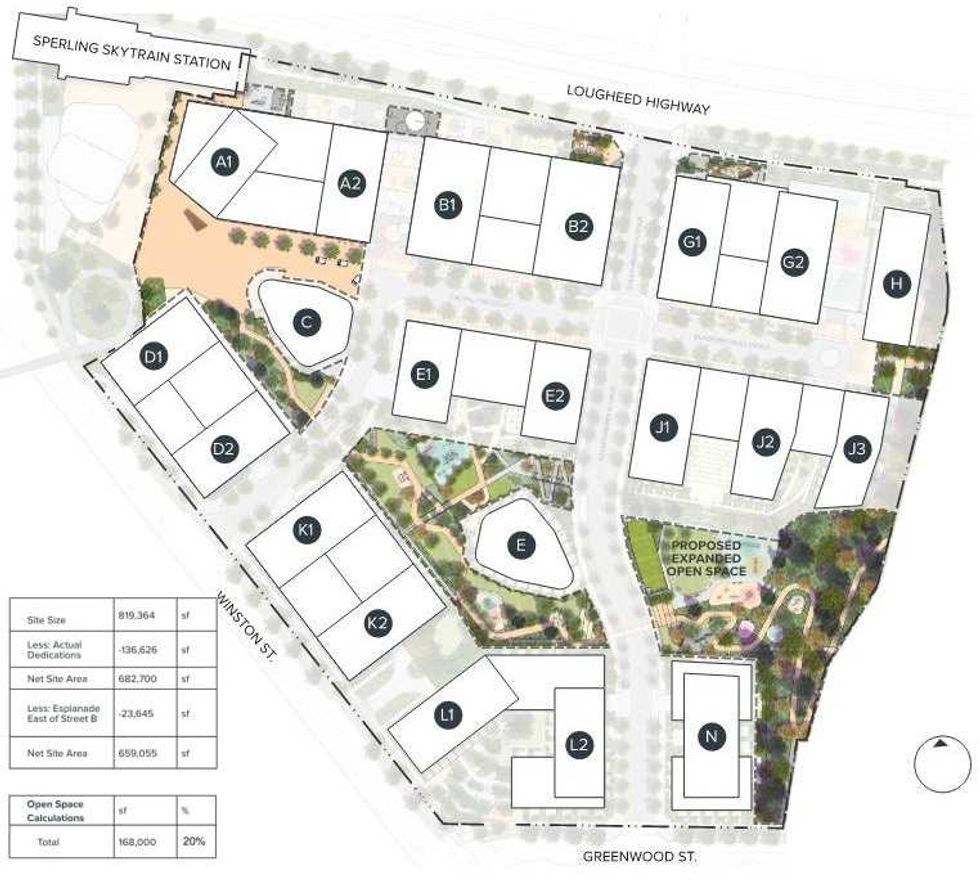 An overview of Blake Village and planned open space. (Peterson)
An overview of Blake Village and planned open space. (Peterson)

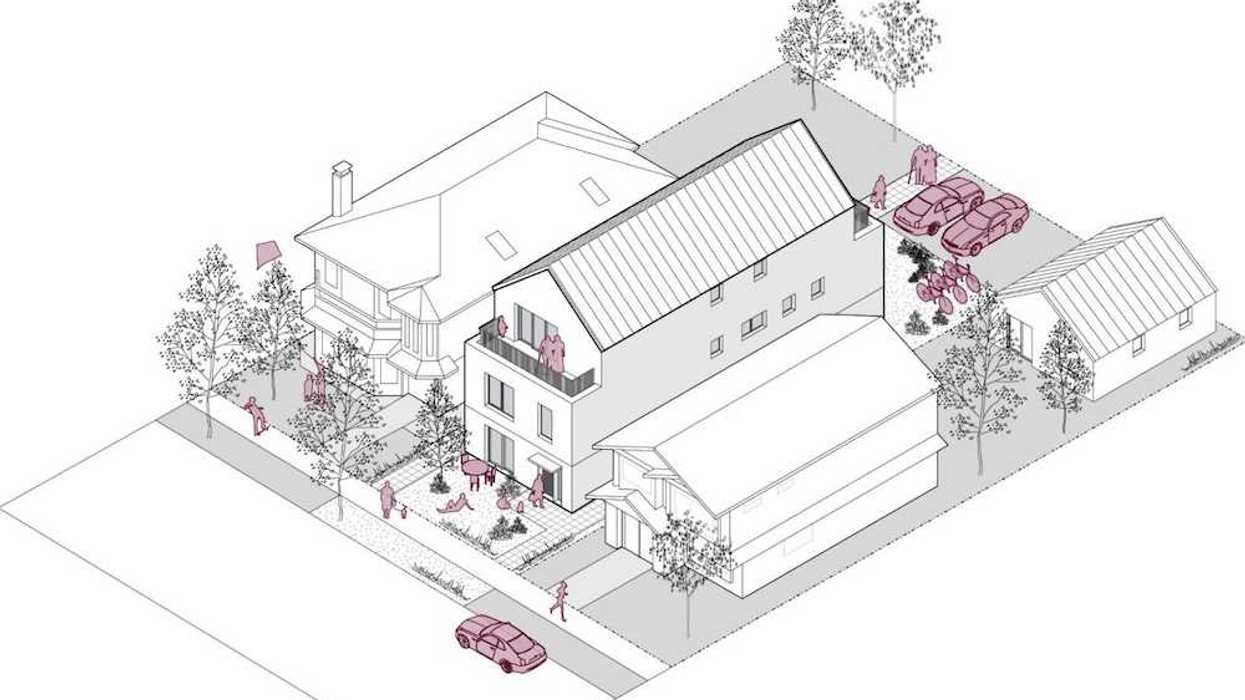


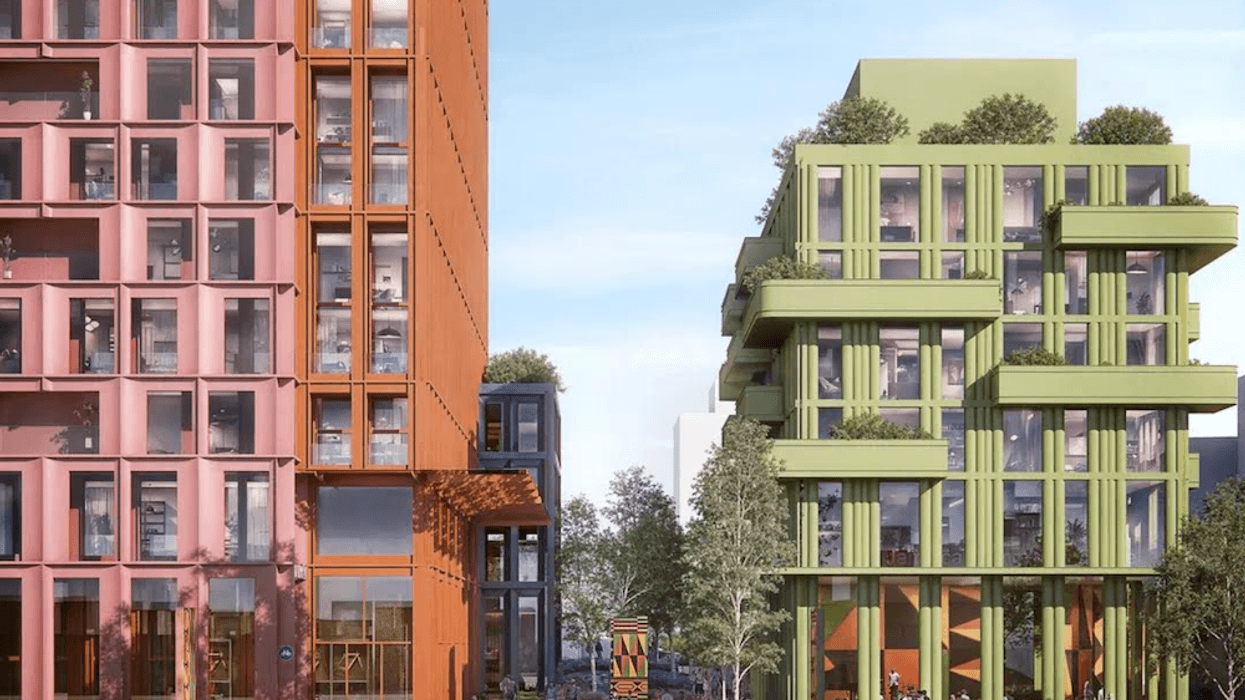




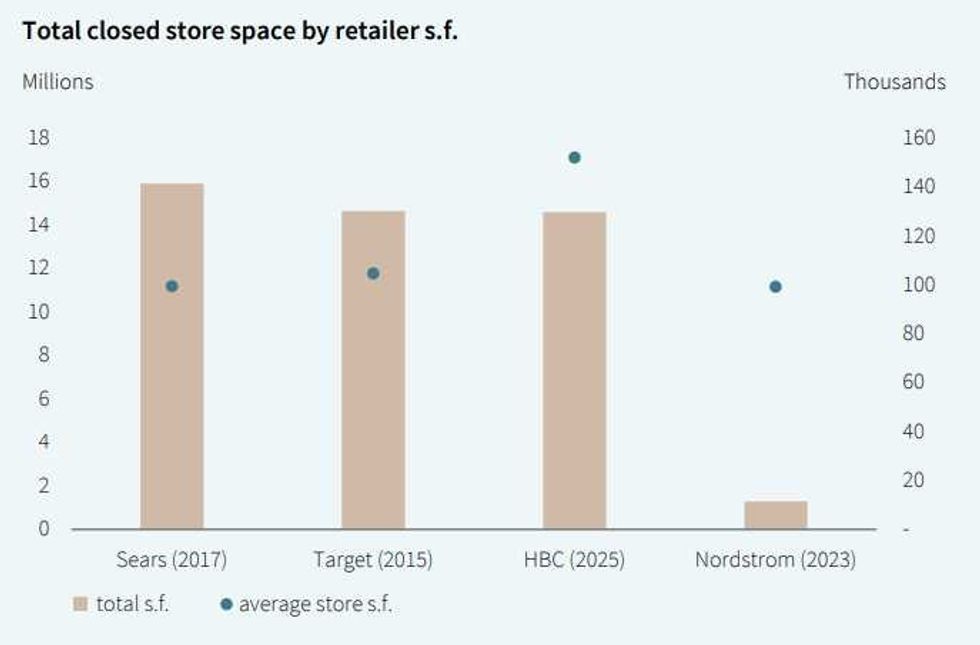 Hudson’s Bay vacated about as much space as Target did in 2015. (JLL)
Hudson’s Bay vacated about as much space as Target did in 2015. (JLL)

 A rendering of Frame in East Vancouver. (Peterson)
A rendering of Frame in East Vancouver. (Peterson) The Tesla facility set for 908 Raymur Avenue in Vancouver. (Beedie)
The Tesla facility set for 908 Raymur Avenue in Vancouver. (Beedie) Phase One of Sen̓áḵw in Summer 2025. (OPTrust, Nch’ḵay̓)
Phase One of Sen̓áḵw in Summer 2025. (OPTrust, Nch’ḵay̓) (QuadReal Property Group, Westbank)
(QuadReal Property Group, Westbank) The two-tower Cascades project under construction in mid-2025. (Ledcor)
The two-tower Cascades project under construction in mid-2025. (Ledcor) A rendering of Perla near Central Park. (Polygon Homes)
A rendering of Perla near Central Park. (Polygon Homes) Phase One of Concord Metrotown is located at the corner of Kingsway and Nelson Avenue in Burnaby. (Concord Pacific)
Phase One of Concord Metrotown is located at the corner of Kingsway and Nelson Avenue in Burnaby. (Concord Pacific) Myriad will complete Concert Properties’ Heart of Burquitlam community. (Concert Properties)
Myriad will complete Concert Properties’ Heart of Burquitlam community. (Concert Properties) SOCO 2 (left) in Coquitlam. (Drew Powell, LinkedIn)
SOCO 2 (left) in Coquitlam. (Drew Powell, LinkedIn) King George Hub in Surrey. (Submitted by PCI Developments)
King George Hub in Surrey. (Submitted by PCI Developments)